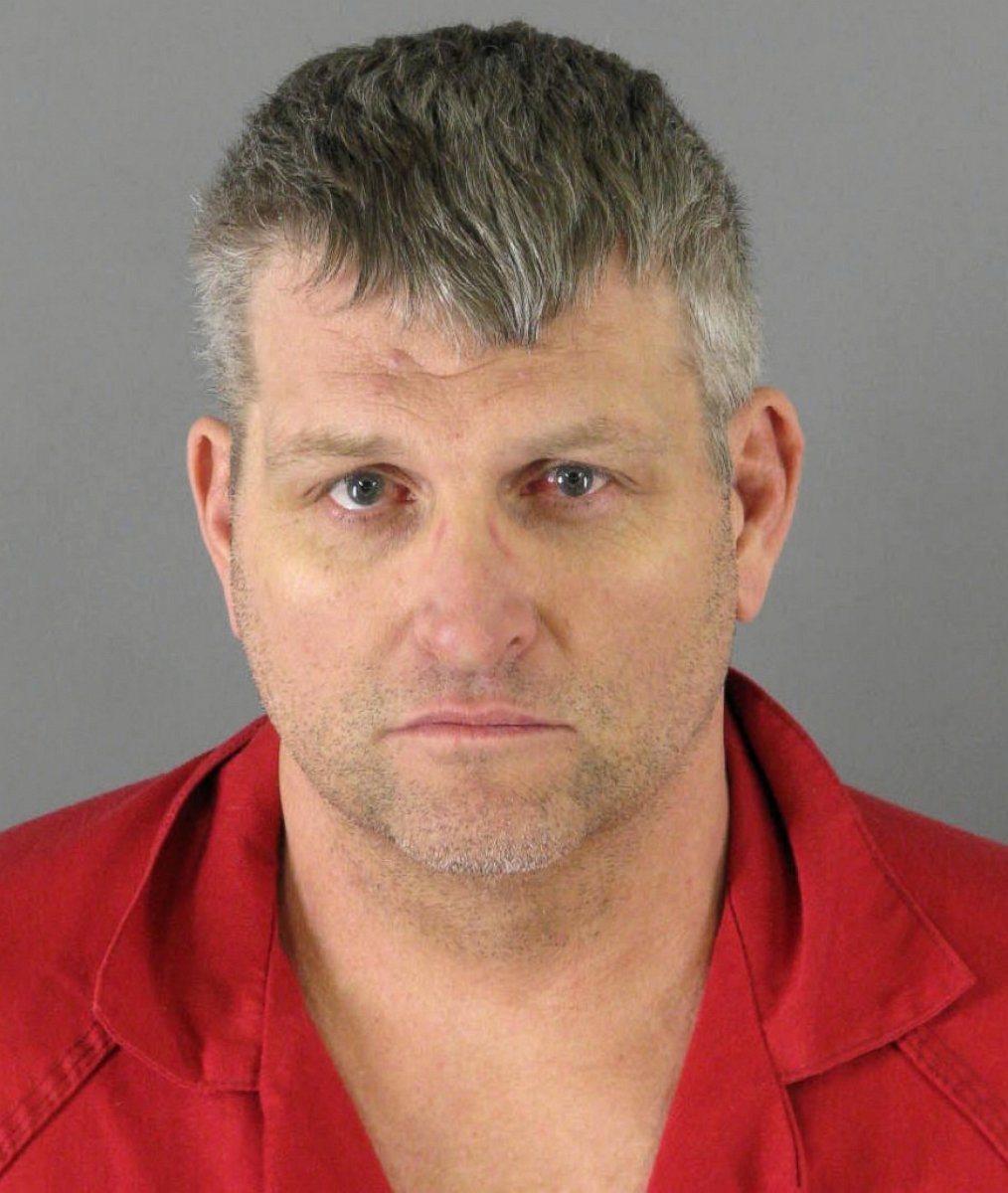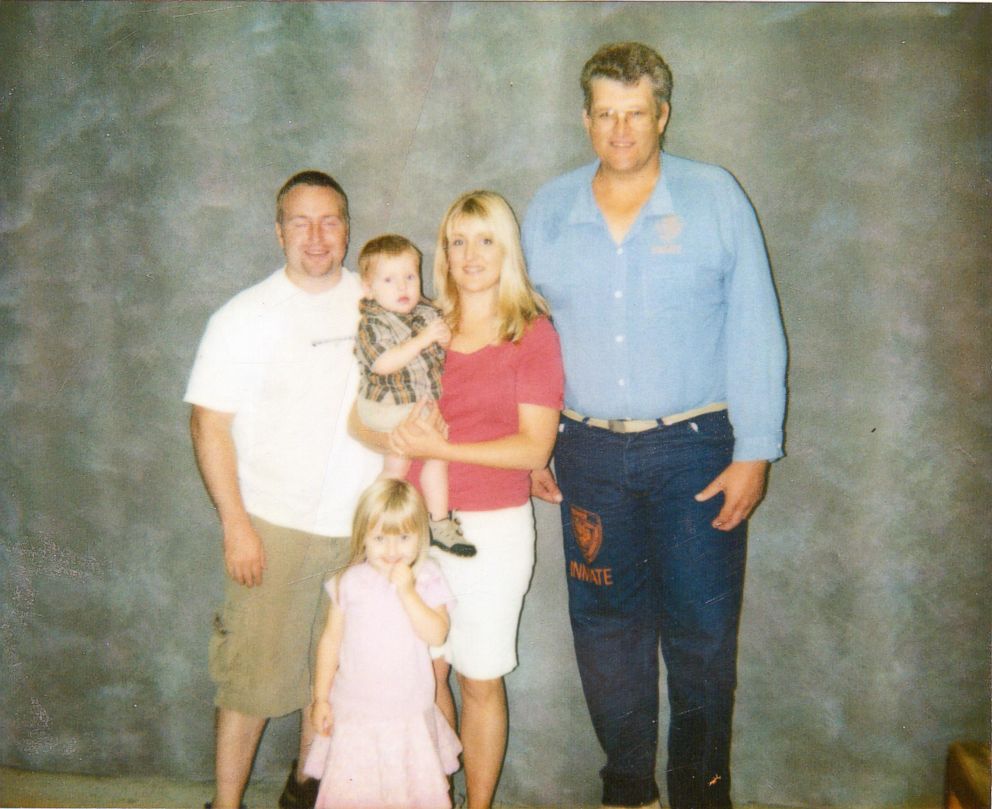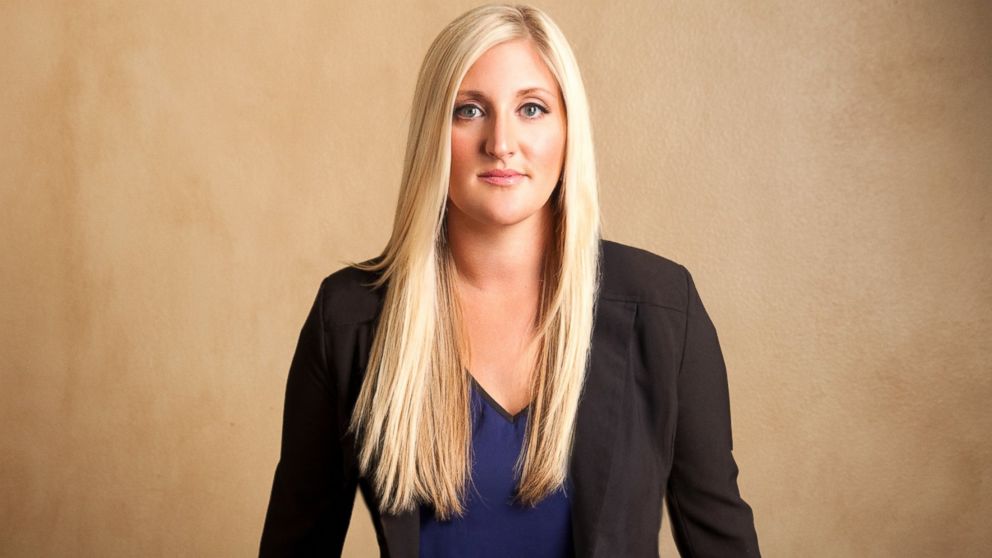'Happy Face Killer's' Daughter Melissa Moore on Moving Forward, Uniting With Other Family Members of Serial Killers
— -- It’s been 20 years since Keith Jesperson, one of the most notorious serial killers in the country, was sentenced to spend the rest of his life in prison, but his daughter Melissa Moore, who now has children of her own, still struggles with navigating the traumatic aftermath of her father’s sadistic past.
“It was really tough to try to find the resources to tell my children who their grandfather is,” Moore told ABC News’ “20/20” in a recent interview. “There’s no books like what to do if your dad is a serial killer. There’s no pamphlets, no support groups, and the best answer that I could find for myself was just little by little.”
Watch Melissa Moore's story on ABC News' "20/20" on Friday, July 10 at 10 p.m. ET.
Moore, now 36, is the daughter of the man who became known in the ‘90s as the “Happy Face Killer.” Keith Jesperson earned that moniker for the smiley face drawings he included on his confession letters, in which he bragged about killing eight women in a spree that began in 1990, the same year his divorce from Moore’s mother was finalized. Jesperson, a long-haul truck driver, carried out his killings over the course of five years and went undetected until he turned himself in. Jesperson has been serving three consecutive life sentences in Oregon’s state penitentiary since 1995.
“We are secondary crime victims. We carry that shame and we want to remove that,” Moore said. “I feel in a sense I am related to my father, but I didn’t cause the pain. But knowing that my father caused some pain causes me pain.”

In order to de-stigmatize her father for her children, Moore decided to share her story. She wrote a book entitled, “Shattered Silence: The Untold Story of a Serial Killer’s Daughter,” and over time, Moore has become a kind-of advocate for relatives of mass murderers, people like herself who are searching for understanding and comfort from someone who has been through the same experience.
“I got several emails saying, ‘Oh my goodness, you have a story that’s similar to mine. I thought I was alone. I want help. Can you help me?’” Moore said.
Moore estimates she has corresponded with more than 100 children of murderers, including the daughter of the BTK Killer and the Boston Strangler’s family.
“They have been living in shame the way I used to live in shame, thinking that you’re somehow responsible for that family member’s actions, that you owe the world an apology,” said Moore.
In a new TV series on LMN, “Monster in My Family,” Moore is meeting with the families and telling their stories, as well as bringing together relatives of the killer with a relative of the victim. (LMN is owned by A&E Networks, a joint venture between the Disney-ABC Television Group and the Hearst Corporation.)
“I really wanted to show people versus tell people when they asked, ‘How did you not know that you father is a serial killer?’” Moore said. “We all have a common answer, family members of violent offenders: They have two different [lives], a double life.”
Moore and two other daughters of notorious killers are profiled in the July 2015 issue of Marie Claire, where they all say they had to learn to separate their father's action from their own lives.
Moore, the oldest of three children, said her first clue into her father’s double life was when she was a young girl growing up in Toppenish, Washington, and she said she saw him torture and kill kittens.
"I think I caught a glimpse of the sociopath, the part of where felt in control over me and that he enjoyed it. I got the sense that there was another side to him," Moore said in an interview with “20/20” in 2010.
Jesperson was a long-haul truck driver who was constantly on the road for work. He married Moore’s mother Rose Hucke, who he met when she was a teenager, in 1975.
But after 14 years of marriage, Hucke decided to leave her husband. She packed up their three children and drove to Spokane, Washington, to move into her mother’s basement while Jesperson was on the road. Melissa was only 10 years old at the time. The two eventually divorced, but Jesperson continued to visit the family over the next five years, whenever his trucking jobs took him their way.
Moore said their time together seemed normal and was fun, aside for some awkward conversations that sometimes became grotesque.
“One time as we were driving up the old scenic highway, my father said, ‘I know how to kill someone and get away with it,’” Moore said in 2010. "[It turned out] the same route that we would take going to the Oregon coast is where he disposed of the first victim.”

Jesperson’s first victim was 23-year-old Taunja Bennett, who he met at a bar in the Portland, Oregon, area. After a night of heavy drinking in January 1990, he and Bennett, who was described by her family as overtly friendly and developmentally slow, went back to Jesperson’s home, where he attempted to have sex with her.
"Comments were made and different things and an altercation happened, and I struck her. I actually had hit her in the face and for some reason I just kept hitting her in the face and because of that," Jesperson told “20/20” in a phone interview from prison in 2010. "I feared going to prison for slugging her in the face and causing her bodily injury and so I killed her."
After Bennett’s death became public, a woman named Laverne Pavlinac tried to frame her abusive boyfriend for the crime, telling police he had murdered Bennett using details of the crime from newspaper reports. In reality, neither Pavlinac nor her boyfriend had anything to do with the case. It was a bizarre false confession, yet both were convicted in her murder.
Frustrated by the attention the pair received for Bennett’s murder, Jesperson, who was back on the road, wrote a message on a rest stop bathroom wall that said, “Jan 21 90... Killed Tanya [sic] Bennett in Portland... Two people got the blame... So I can kill again.”
Over the next five years, Jesperson committed seven other murders, one of which Moore said she might have been able to prevent.
“He came into town again to visit, and he asked if I would want to stay the night like we would always do when he’d come into town. And I declined, and then that night he picked up a victim,” Moore told “20/20.” “And killed her. I think about what if I would have stayed. Would that have happened? Would he have met her?”
Jesperson wanted credit for his crimes so he wrote a six-page confession letter to The Oregonian, the local newspaper, detailing a virtual road map of his murders, but signed it with a smiley face instead of his name, earning him the moniker, “Happy Face Killer.”
His long-term girlfriend Julie Winningham was his eighth and last victim. Once her body was discovered, police found his signature on a receipt among her possessions. Jesperson turned himself in the day after a detective questioned him about the case. Jesperson’s brother also gave detectives a letter Jesperson had sent to him that described the eight murders he had committed.
Moore was a high school student when her mother told her that her father was in jail for murder. In exchange for plea deals that would allow him to avoid the death penalty, Jesperson confessed to the murders.
Ashamed of what people would think, Moore kept her father’s horrible past a secret for years, and spent most of her life hiding her identity. When she was 21, she met her husband Sam Moore and right before their wedding she revealed to him who her father was, but he said he wasn't concerned. The couple has two children together, a daughter Aspen, who is 14 and about to enter high school, and a son Jake, now 11.
It’s been nearly a decade since Moore last saw her father, when she brought her husband, then-4-year-old Aspen and then-infant Jake to visit Jesperson in prison. Moore and her husband have decided to keep their distance, though Moore said Jesperson continued to send them letters that she doesn't read.
Despite her quest for closure, Moore said she still can’t seem to forgive herself for what her father did or forgive her father for his crimes.
“I can forgive my dad for being arrested. I can forgive him for not being there, not being the dad I wanted,” Moore said. “I cannot forgive the crimes he committed.”
But now after telling her story and having no contact with Jesperson, Moore said she’s no longer bitter and can move on.
“Now, meeting family members of other serial killers, I know that that’s my meaning. Not because of, but despite of what happened to me, we are finding meaning together in the aftermath of these, you know, horrible crimes,” said Moore.
Tune in to watch Melissa Moore's story on ABC News' "20/20" on Friday, July 10 at 10 p.m. ET.




